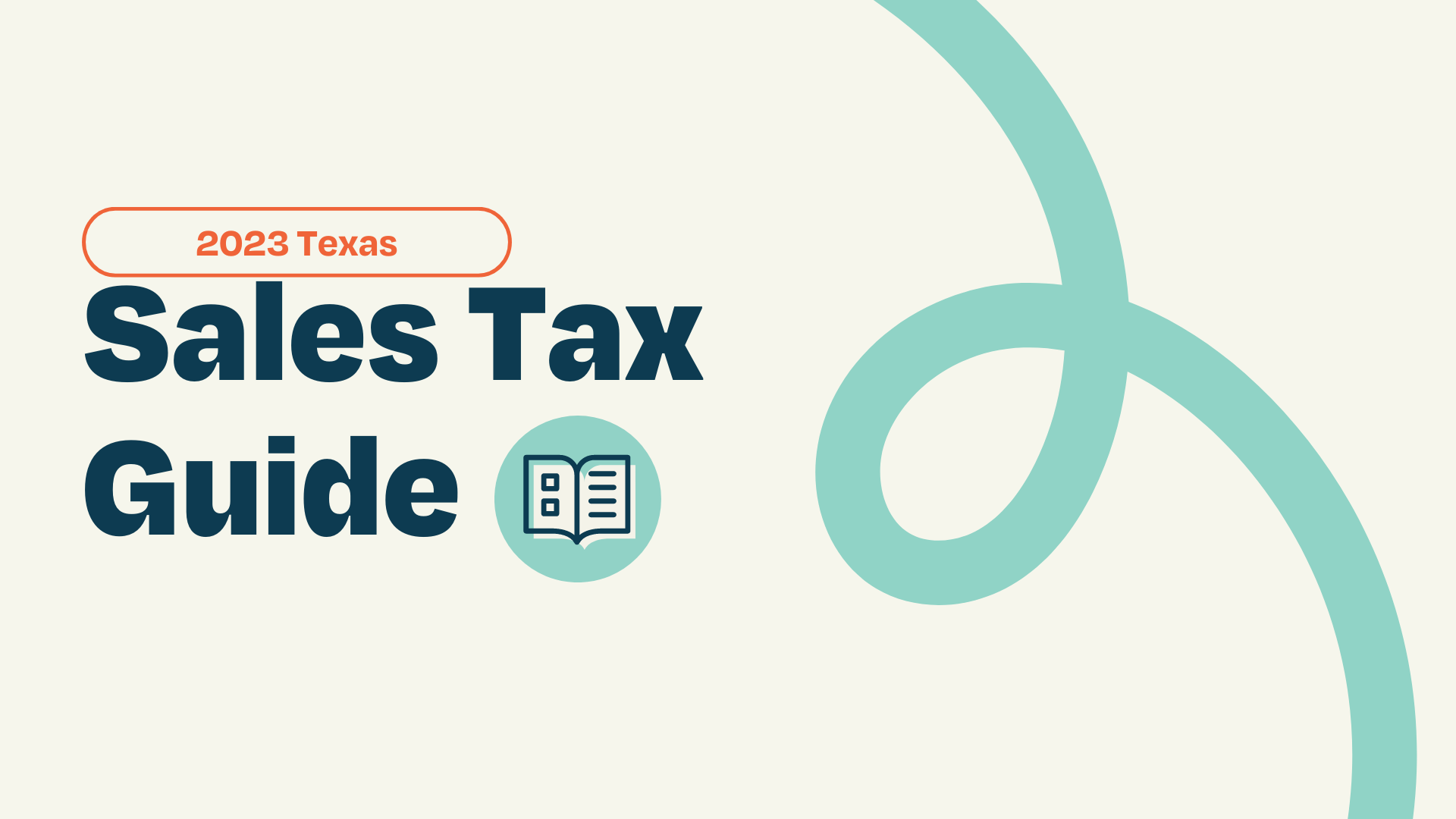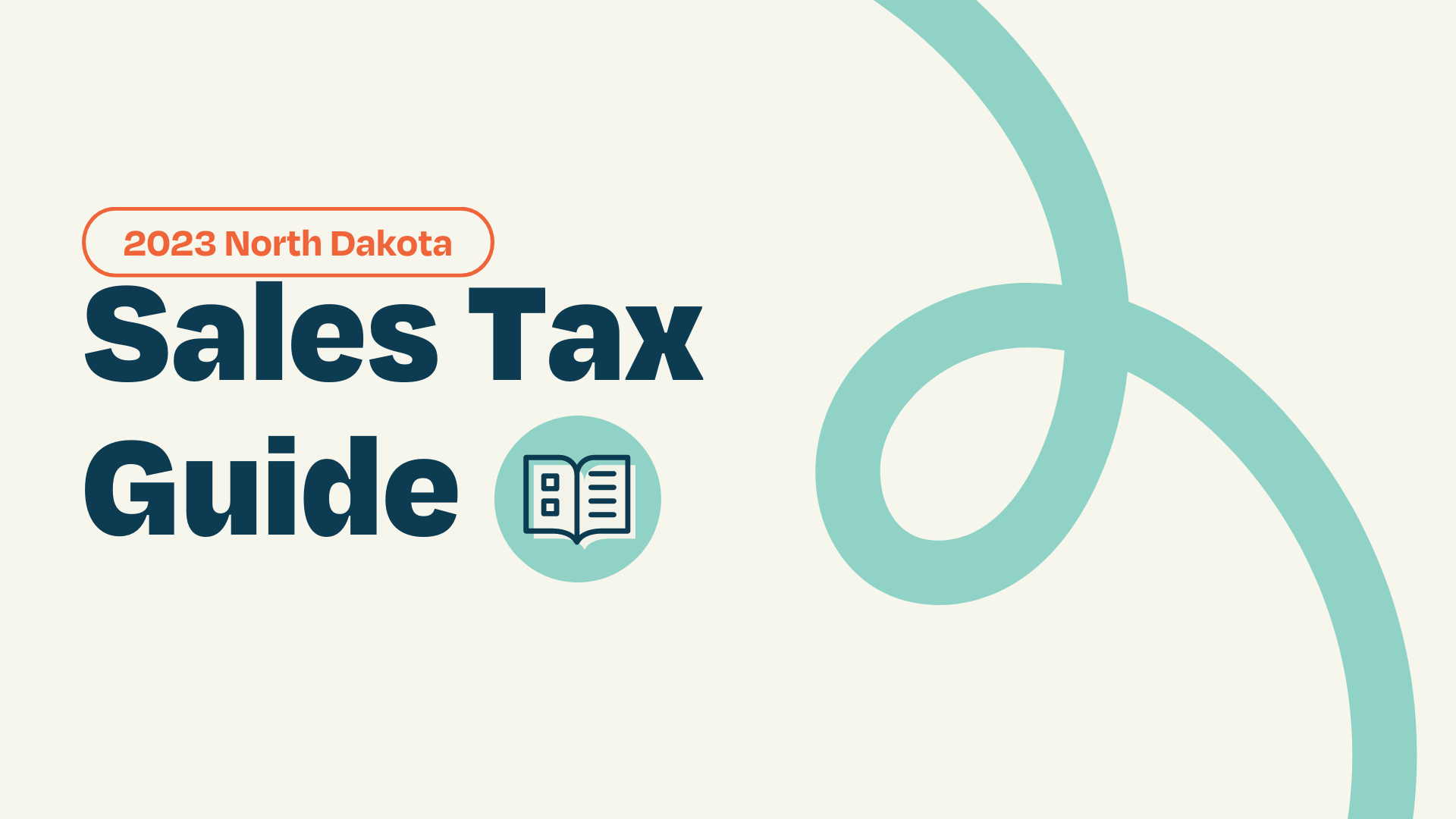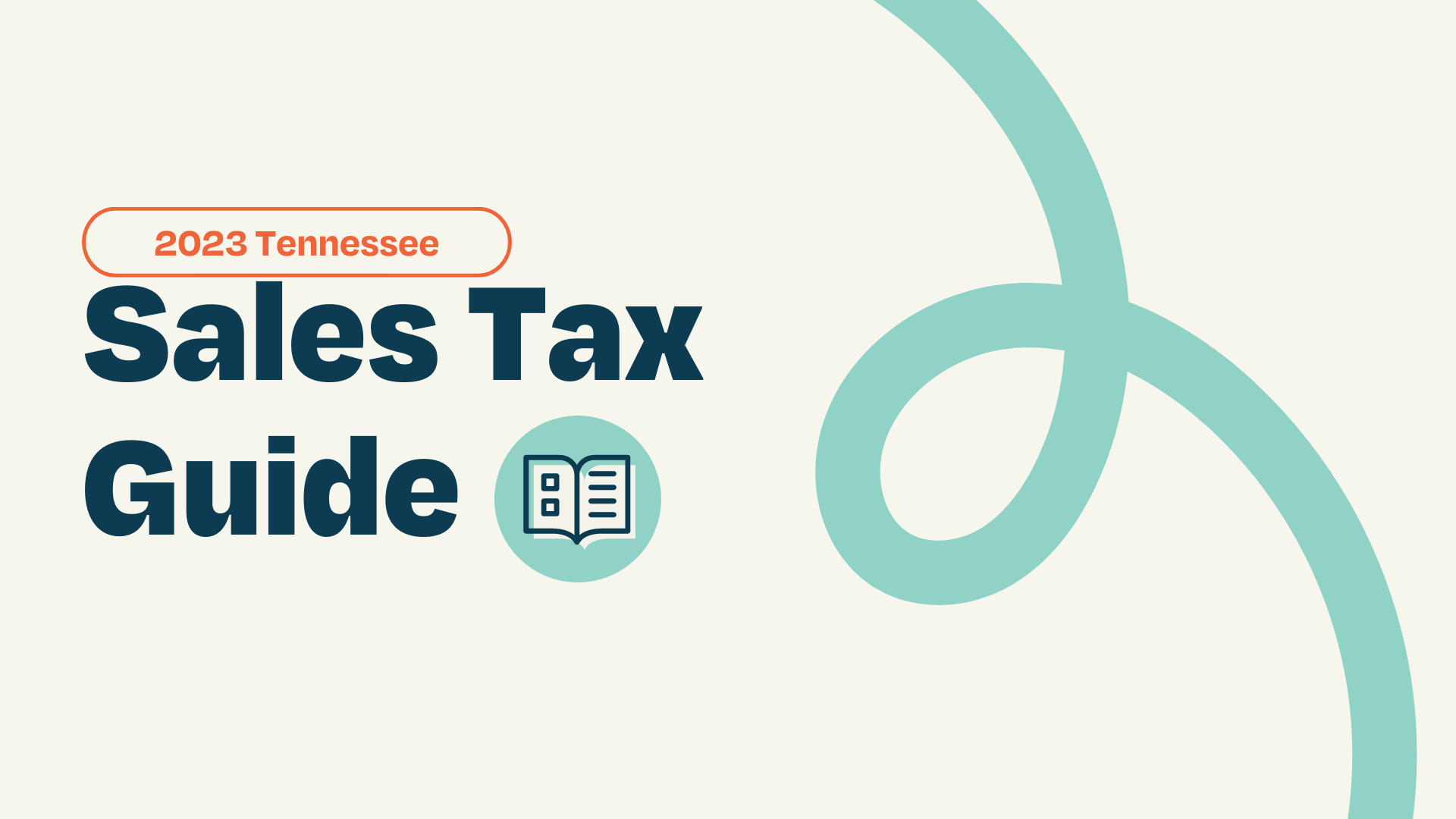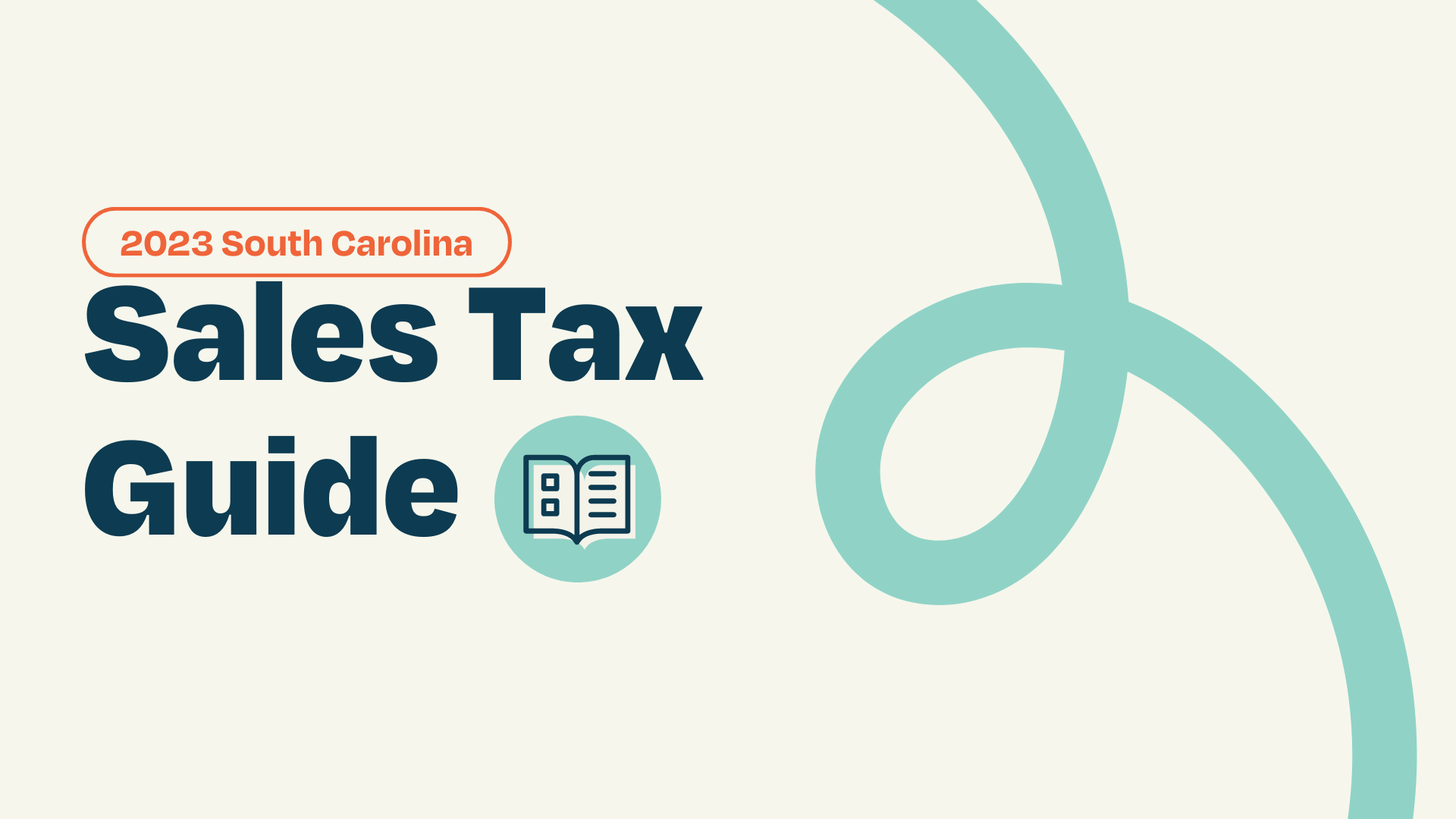North 2023 Dakota Sales Tax Guide
North Dakota Sales Tax in a Word Embarking on the journey of running a small business in North Dakota is an exciting adventure filled with...

Saddle up, partners! If you're doing business in the Lone Star State, you're going to need to know your way around Texas sales tax. Whether you're wondering if you have sales tax nexus, need help registering for sales tax, or are looking for tips to avoid common filing mistakes, this guide has you covered. From Austin to Dallas, El Paso to Houston, we're here to help you navigate the Texas sales tax landscape like a native. So, let's hit the trail and dive into the world of Texas sales tax!
|
Table of Contents |
When it comes to Texas sales tax, the state has its own version of a sheriff in town to keep everything in order. Let’s get to know them a little better.
The Comptroller of Public Accounts is the Texas agency responsible for managing sales tax. Like a seasoned rodeo rider, they handle everything from tax collection and administration to auditing businesses to ensure compliance.
If you find yourself lost in the tax desert, you can always reach out to them for guidance. Here's how:
|
Phone Numbers |
1-800-252-5555 |
|
|
|
|
Website |
Whether you're a seasoned tax pro or a greenhorn just getting started, don't hesitate to reach out to the Comptroller if you have questions or need help. Like a trusty cowboy sidekick, they're there to guide you through the wide-open plains of Texas sales tax.
Nexus is an important legal term that is used to describe the relationship that a business may have in a particular state that will require it to pay that state's sales tax. In Texas, nexus can be created in several ways, depending on the function that the business carries out in the state.
Nexus can be created if a business operates a physical or online store, has property, or has employees who are actively working in the state of Texas. For example, if a business has a physical presence in the state, such as a store, office, or warehouse, then it may be subject to Texas sales tax. It can also be created if the company owns real estate such as land, office buildings, or stock in a larger company in Texas.
Furthermore, if the business employs people in Texas, they can create nexus in the Lone Star State, making it a tax obligation for the business. Another way for a business to establish nexus in Texas is if it has contracted employees who work within the state. No matter what the situation is, if a business has certain connections in Texas, it is likely they will need to file sales tax returns with the state and pay the associated taxation.
Physical nexus in Texas means that your business has a physical presence in the state, such as a retail store, warehouse, office or even a sales representative. This means that, even if you are based outside of Texas, having a physical nexus there means you're liable for state taxes, like Income Tax, Sales Tax, Franchise Tax, and more.
Having physical nexus in Texas gives you the same rights and responsibilities as any other resident, such as the right to vote, the right to access government services and the obligation to pay taxes. This means that if your business has a physical presence in Texas, you've got physical nexus, and therefore you must obey the tax laws of the state, just like any other resident.
Economic nexus in Texas goes beyond the geographic location of a business; it's actually based more on the amount of business conducted by the company. For businesses with over $500,000 in sales in Texas in any given year, they have automatically acknowledged economic nexus, feeling the impact of Texas sales tax laws regardless of their physical location. This means that even if a business isn't situated in Texas, they may find themselves liable for taxes if they cross the economic nexus threshold.
In Texas, if your business has any form of affiliation or connection with another business entity, such as a subsidiary, parent company, producer, supplier, or provider of customers, then you may be subject to affiliate nexus regulations. These regulations stipulate that businesses of a certain size with an affiliation to a business entity in the state must register and pay taxes to the Texas Comptroller of Public Accounts.
Additionally, businesses may be responsible for collecting and remitting taxes on certain types of sales made within the state. With affiliate nexus regulations, businesses should ensure that they are aware of any potential connections in order to ensure that all applicable taxes and fees are paid correctly.
Click-through nexus in Texas is like a digital trail of breadcrumbs leading customers to your business. If you have a contract with a Texas resident who refers potential customers to your business through a link on their website, and your gross receipts from these sales exceed $10,000 in the preceding twelve months, you may have click-through nexus.
When selling products via a marketplace provider that has a presence in the state of Texas, such as Amazon or eBay, it is similar to the concept of leasing a stall within a large flea market in Texas. This creates a type of "business nexus" with the state, essentially allowing the marketplace provider to act as an intermediary between the seller and consumer. This allows for sellers to have an extensive customer base as Texas has such a large population. Furthermore, it allows them to ship their products directly to and from customers in the state; thus, creating an even greater convenience.
Yes. In Texas, if you purchase a taxable item from a place that is outside the state, you must pay use tax to the Comptroller. This is similar to when you buy a cowboy hat from somewhere else and you must pay Texas sales tax when you bring it back home. This is to ensure that the state of Texas is collecting appropriate taxes on goods brought into the state. The Comptroller is responsible for collecting these taxes and using them for public services and infrastructure in the state. This is part of their role as a form of oversight on the spending and use of resources in Texas.
Whether you're starting a new business or expanding into the Lone Star State, registering for Texas sales tax is a critical step. It's like getting your official cowboy credentials before you ride into the sunset of entrepreneurship.
Whether you're starting a new business or expanding into Texas, registering for Texas sales tax is a crucial step. It is equivalent to obtaining official credentials as an entrepreneur before embarking on your journey.
Determine if Registration is Required: First, check if your business has sales tax nexus in Texas. If it has a physical presence, meets the economic threshold, or fulfills any other nexus criteria, registration is necessary.
Gather Required Information: Before beginning the registration process, gather all essential information. This includes your business's legal name, physical and mailing addresses, Social Security number or Federal Employer Identification Number (EIN), and details of partners, officers, members, or trustees.
Apply Online or by Mail: Texas offers the option to apply online using the Texas Comptroller's Webfile system. Create an account and complete the Texas Online Tax Registration Application. Alternatively, you can download Form AP-201, the Texas Application for Sales and Use Tax Permit, from the Comptroller's website, fill it out, and mail it in.
Await Confirmation: Once you submit your application, patiently wait for the Comptroller to process it. Online applications may take up to three weeks, while mail applications can take six to eight weeks for processing.
Maintain Compliance: After successfully registering, it is crucial to stay compliant. This involves collecting the appropriate amount of sales tax, filing returns on time, and maintaining accurate records. Remember, responsible business ownership is akin to being a law-abiding cowboy who respects the rules of the land.
Here's some good news that'll make you happier than a longhorn in a field of bluebonnets: registering for a Texas sales tax license is absolutely free. That's right, partner—no cost to you.
Yes, you do. Think of your Federal Tax ID Number or Employer Identification Number (EIN) as your business's Social Security number. It's a unique identifier that you'll need to register for a Texas Sales Tax License.
Depending on your business type and the products or services you offer, you might need to tip your hat to a few other Texas agencies. These could include the Texas Alcoholic Beverage Commission if you're selling alcohol, or the Texas Department of Agriculture if you're in the farming and food production industry. Always research the specifics of your industry to ensure you're fully compliant with all state regulations.
Collecting sales tax in Texas can feel a bit like rounding up cattle, but with the right knowledge and tools, you'll be herding those tax dollars like a pro in no time.
First off, it's important to know that Texas is a destination-based sales tax state. This means that sales tax is based on the location of the buyer, not the seller. So, if you're selling cowboy boots from Dallas to a customer in Houston, you'll need to charge the sales tax rate for Houston, not Dallas.
In Texas, most sales of tangible personal property and taxable services are subject to sales tax. This includes everything from furniture and appliances to landscaping and data processing services. If it's tangible and can be bought or sold, it's likely subject to sales tax in Texas.
Is SaaS taxed in Texas? You bet your bootstraps it is. Texas considers SaaS to be a taxable data processing service. So if your business provides SaaS, make sure you're collecting sales tax.
Just like a hidden waterhole in the desert, there are some items and services that are exempt from sales tax in Texas. This includes most types of food bought at grocery stores, prescription medicines, and services like medical services and real estate transactions.
Certain organizations and individuals may be eligible for Texas sales tax exemptions. This includes non-profit organizations, schools, and government agencies, as well as resellers who purchase goods for resale and manufacturers who buy raw materials.
If your customer is exempt from sales tax, you'll need to obtain a completed Texas Sales and Use Tax Exemption Certificate from them. Keep this certificate on file as proof that the sale was exempt in case of an audit.
Losing a Texas Sales Tax Exemption Certificate can feel like losing your horse in the middle of a cattle drive. But don't fret, partner! The customer who provided the certificate can simply issue a new one. It's important that you get a replacement as soon as possible, as you're required to keep these certificates on file for four years.
Filing and paying sales taxes in Texas may seem as daunting as a bucking bronco, but with a little guidance, you'll be riding high in the saddle in no time.
The frequency with which you'll need to file and pay sales tax in Texas is based on the total amount of tax you collect.
The filing frequency and dues dates are as follows:
|
Monthly Filing |
If the sales tax collected is $1,500 or more for the calendar quarter, you must file monthly. |
Due on the 20th of the month following the reporting period. |
|
Quarterly Filing |
If the sales tax collected is under $500 for the month or $1,500 for the calendar quarter, you may must file quarterly. |
Due on the 20th of the month following the end of the quarter (April 20, July 20, October 20, and January 20). |
|
Annual Filing |
If the sales tax collected is under $1,000 for the calendar year, you may file annually with Comptroller authorization
|
Due on January 20 of the following year. |
If your filing date falls on a weekend or a public holiday, don't worry, the Texas Comptroller has your back. Just like an understanding rodeo judge, they'll give you until the next business day to file.
Filing a Texas Sales Tax Return can feel like navigating a prairie in the middle of the night. But with the right guide, you'll be able to see the stars. Here's how to do it:
First, collect all the records of your sales and the tax you've collected. This includes both taxable and non-taxable sales, and sales made to customers with tax exemption certificates.
Next, calculate the total amount of tax due. This is where knowing the specific tax rates for the places you made sales comes in handy. Remember, Texas is a destination-based state, so you'll use the rates from where your customers are, not where you are.
You can file your sales tax return in Texas through the Comptroller's online system, Webfile. Once you've logged in, you'll select the "Sales Tax" option and follow the prompts to input your information.
If you're more of an old-school cowboy, you can also file by mail. Just fill out Form 01-117, Texas Sales and Use Tax Return, and send it to the Comptroller's office.
After you've filed your return, it's time to pay up. You can pay online through Webfile, or if you're filing by mail, include a check made out to the "Texas Comptroller".
After you've filed and paid, keep a copy of your return and all related documents. You'll need these records in case of an audit, or if you need to file an amended return later on.
Remember, filing your sales tax return in Texas is like taking care of your horse: it might not be the most glamorous part of your job, but it's essential to keep your business running smoothly.
Just like stepping on a rattlesnake, missing your sales tax filing in Texas can have painful consequences. Penalties can range from a 5% penalty if you're 1-30 days late, to a 50% penalty if the tax is not paid within 60 days after a deficiency notice is mailed.
Yes, Texas does offer sales tax incentives to spur business growth, much like a jolt of cowboy coffee on a cold morning. These can include the Texas Enterprise Zone Program, which offers state sales and use tax refunds to businesses in certain areas, and the Manufacturing Exemption, which can provide a sales tax exemption on certain manufacturing machinery and equipment. Always check with the Texas Comptroller to see which incentives might apply to your business.
Determine if you need to file monthly, quarterly, or annually based on your total revenue. New businesses may qualify for quarterly or annual filing at first. But as your revenue grows, you may be required to file more frequently. Check the Texas Comptroller’s website for details on filing frequency thresholds.
Gather sales records, invoices, bank statements, and any other documents you need to accurately calculate your gross sales, exempted sales, and taxable sales for the filing period. Doing this upfront will save you time and avoid mistakes later.
Some sales are exempt from sales tax in Texas. Be sure you understand which types of sales are taxable and which are not to avoid collecting and remitting unnecessary tax. Common exempt sales include groceries, prescription medications, and services.
Carefully calculate your taxable sales and the sales tax due. Then double check all of your figures to make sure there are no mathematical errors. A small mistake can lead to your business owing money plus penalties and interest
Mark your due dates on your calendar and set reminders to file and pay by the deadline. Late filings and payments will incur costly penalties from the Texas Comptroller. File on time, even if you cannot pay the full amount due. You can request a short extension or payment plan later if needed.
Following these tips will help you accurately file your Texas sales tax returns and avoid common mistakes. Check the Comptroller’s website or consult a tax professional if you need assistance getting started. Proper sales tax filing helps keep your business compliant and avoids tax audit issues down the road.
And there you have it, folks! Mastering the art of sales tax in Texas doesn't have to be as tricky as a rodeo clown dodging a bull. With a solid understanding of your responsibilities, a keen eye on your due dates, and a commitment to diligent record-keeping, you'll be navigating the terrain like a seasoned trail boss.
Remember, while the journey may seem long and winding, you're not alone out on the prairie. Here at Accountingprose, we're your trusty sidekicks, ready to lend a hand and guide you through the thorny thicket of sales tax regulations.
So whether you're brand new to the rodeo or an old hand looking to brush up on the rules, we hope this guide has provided you with the knowledge you need to confidently handle your sales tax in Texas. Because at the end of the day, our goal is to help you focus less on numbers and more on what you do best - running your business.
Happy trails, partners! Remember, the path to success is always under construction, but with the right mindset and a little guidance, you'll be able to conquer any hurdle that comes your way. Keep those boots polished, your records clean, and your spirit high. Until next time!
|
Ready to work with a Texas sales tax expert? We've love to work with you! |
|
Alaska Sales Tax Guide (N/A) |
||||
|
Montana Sales Tax Guide (NA) |
||||
|
Oregon Sales Tax Guide (N/A) |
||||
|
Delaware Sales Tax Guide (N/A) |
||||
|
New Hampshire Sales Tax Guide (NA) |
||||
And don't forget to check out our blog about Economic Nexus, which serves as an invaluable resource for businesses who have sales that are subject to sales tax.
This blog is for informational purposes only and the information is accurate as of 2023-06-19. If you want legal advice on sales tax law for your business, please contact a State and Local Tax (SALT) professional. Keep in mind that sales tax regulations and laws are subject to change at any time. While we strive to keep our blog current, this blog possibly may be out of date by the time you review it.

North Dakota Sales Tax in a Word Embarking on the journey of running a small business in North Dakota is an exciting adventure filled with...

Tennessee Sales Tax in a Word Welcome, partners, to the grand rodeo of Tennessee sales tax! Just like mastering the fiddle or perfecting your...

South Carolina Sales Tax in a Word Welcome, fellow adventurers! Are you ready to navigate the exciting waters of South Carolina sales tax? I...